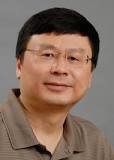
KUANG Yang
- School of Mathematical and Statistical Sciences, Arizona State University, Tempe, United States of America
- Competition, Food webs, Host-parasite interactions, Population ecology, Theoretical ecology
- recommender
Recommendations: 0
Reviews: 0
Areas of expertise
My recent interests in ecology are focused on stoichiometry based population models and their implications. These models carefully imbed the powerful and natural chemical heterogeneity that innate to all biomasses. This is a solid platform for understanding most of the complex dynamics found in biosciences, including the current issues on biocomplexity and biodiversity. It naturally connects gene to individual growth through the so-called growth rate hypothesis, and this in turn connects all the way to complex ecosystem dynamics. The ratio-dependent population models provide natural mechanisms for the deterministic total extinction of all species. These painfully formulated and systematically studied mathematical models can often reveal deep biological insights that are important for our efforts in protect and managing our fragile ecosystems and vast but diminishing biodiversity. Questions we ask include such as what mechanisms allow species to coexist, why and how species evolves and what causes species go extinct.